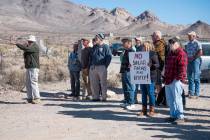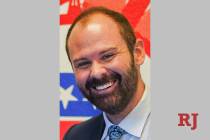Five Nevada chambers join nationwide opposition to Employee Free Choice Act
Five chambers of commerce from across Nevada joined nearly 200 other chambers nationwide in asking Congress to oppose the Employee Free Choice Act.
Chambers from Las Vegas, Henderson, North Las Vegas, Reno and Carson City, along with more than 180 chambers from all 22 right-to-work states, sent a letter to senators and representatives asserting that the act, which would allow unions to replace secret-ballot organizing elections with signed card-check procedures, would imperil economic growth amid today’s recession.
The letter noted that right-to-work status won’t protect employees should the act pass: Though workers can refuse to pay union dues, they’d lose their right to deal directly with management, the missive said. And because organizing would hinge on face-to-face card checks, rather than the anonymity of the ballot box, the law would “invite intimidation and coercion” of employees, the chambers wrote.
“Members of Congress should not deny workers the freedom to choose,” said Thomas Donohue, president and chief executive officer of the U.S. Chamber of Commerce, in a statement accompanying the letter.
Unions say the law is essential given the control managers have over organizing in the work place.
Labor groups blame their dwindling numbers — union representation dropped from 20.1 percent in 1983 to 12.1 percent in 2007 — on the easy employee access that allows management to agitate continually against unions. The act would level the playing field, unions say.
The bill has percolated federally for nearly two years.
It passed the House in 2007 but died in the Senate due to a Republican filibuster. Now, with the House and Senate enjoying greater Democratic majorities, the bill is poised to come before Congress once more before the end of the year. President Obama supported the act as a senator, and has said he’ll sign the bill into law should it land on his desk.
The cost could be growth, the chambers said.
Along with their letter, the U.S. Chamber of Commerce released data showing that economies of right-to-work states grew faster than economies in states that allowed forced union membership or dues-paying. From 2001 to 2006, the statistics said, the average gross state product among right-to-work states grew 18.1 percent, versus 13.6 percent in states without right-to-work laws.
Contact reporter Jennifer Robison at jrobison@reviewjournal.com or 702-380-4512.























